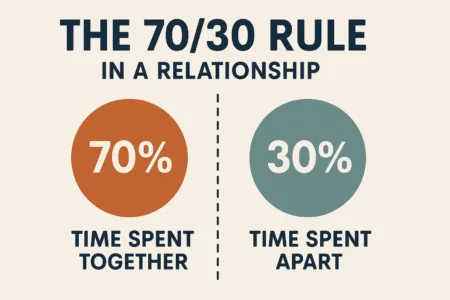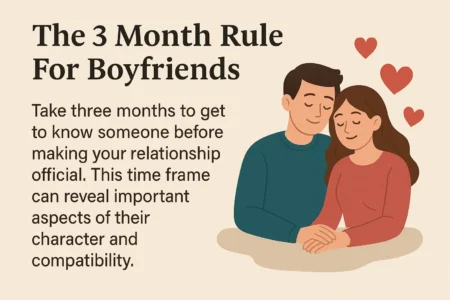Let’s be honest, we’ve all met one. You’re cruising through your day, minding your own business, when suddenly you’re pulled into a bizarre, high-stakes drama over… nothing. A forgotten text. The wrong kind of coffee creamer. Someone using the special mug. You’re left standing there, completely bewildered, wondering how such a tiny spark ignited a full-blown forest fire. If that scenario makes you nod in weary recognition, you’ve danced with a petty person. But what is a petty person, deep down? It’s not just someone who’s a bit picky or has a bad day. It’s a whole worldview, a habit of staring at life through a microscope, laser-focused on imaginary slights while the beautiful, important big picture goes completely blurry.
It’s baffling. It’s absolutely draining.
And it makes you feel like you’re performing a constant tightrope walk. But here’s the good news: you can get off the tightrope. Figuring out what makes these people tick is your first move toward getting your peace back. It’s not about fixing them—that’s not your job. It’s about protecting your own sanity and learning to sidestep their trivial traps with your cool intact.
More in Connection & Dating Category
Signs You Are an Intimidating Woman
Key Takeaways
- A petty person obsesses over trivial matters, consistently blowing small issues completely out of proportion.
- They often keep score in relationships, hold onto grudges over nothing, and communicate through passive-aggressive jabs.
- Pettiness is usually a symptom of deeper issues, like profound insecurity, a need for control, or jealousy.
- To deal with them, you have to set strong boundaries, refuse to get sucked into their pointless fights, and always keep your eye on the bigger picture.
- The best defense is protecting your own energy by not letting their small-minded dramas become your problem.
Have You Ever Wondered Why Someone Makes Mountains Out of Molehills?
Let’s break it down. At its heart, pettiness is really just a warped sense of focus. Imagine you pour your heart out in a letter to someone, a truly meaningful message. Instead of feeling the love and effort you put in, they just hand it back, tapping a finger on a single typo. They saw the tiny flaw but missed the entire point. That right there is the petty mindset in a nutshell. They are the official typo-inspectors of human emotion.
Now, this isn’t the same as having high standards or being detail-oriented—those can be great qualities. Pettiness is different. It’s when that laser focus on the tiny stuff gets weaponized. It becomes a tool to win a power struggle, show disapproval, or just make someone else feel as insignificant as the issue they’re obsessing over. It’s a signature inability to let things slide, especially when a small issue can be twisted into a way to punish someone or score a point. It’s a truly exhausting way to live.
So, What Are the Telltale Signs I’m Dealing with a Petty Person?
Spotting pettiness is the first real step. The behaviors can be subtle, flying just under the radar of what you’d call outright bad behavior. That’s what makes it so frustrating. It creates this low hum of constant tension. Once you learn to spot the signs, though, you can’t unsee them.
Do They Keep a Meticulous Scorecard of Favors?
A real act of kindness doesn’t come with a receipt. For a petty person, however, every single favor is a line item on an invoice. It’s an entry in a mental ledger of debts they never let you forget. They’ll bring up that coffee they bought you six months ago or the time they helped you with a project as if they were calling in a loan.
This isn’t about having a good memory; it’s about collecting ammunition. They hoard these “good deeds” to use against you later, usually at the worst possible moment. You’ll hear things like, “After all I’ve done for you, you’d think you could…” This kind of scorekeeping kills genuine connection. It turns a relationship into a game where they’re always trying to make sure they come out ahead.
Are You Walking on Eggshells Over Minor “Slights”?
Living with or working with a petty person means you’re in a constant state of high alert. You never know what innocent action will be misinterpreted as a grave personal insult. It is completely draining.
I had a friend who was a master of this. Our friendship felt solid, but then I began to see a pattern emerge. One day, she posted a photo online that I didn’t happen to see for a few hours. When I finally did, I liked it and left a nice comment. My reward? A series of icy, one-word replies to my texts.
I was so confused and asked her if she was upset. What came next was a full-blown lecture on how my failure to immediately “like” her post felt deeply unsupportive. She had convinced herself that a delayed tap on a screen was a judgment on my loyalty. The years of actual friendship meant nothing next to the perceived slight of a slow Instagram like. It was a perfect, and painful, example of petty thinking.
Is Passive-Aggression Their Favorite Language?
Direct conversation can be hard. It takes guts. Petty people would rather avoid it entirely. Instead, they become fluent in the language of passive-aggression, letting them show their anger without ever having to own it.
You’ll see it in a few classic forms:
- The Sneaky “Compliment”: “Your new haircut is so… interesting! You’re so brave to try something like that.” It sounds sweet, but it’s designed to make you feel insecure.
- Punishment by Silence: Instead of talking it out, they just ice you out. The silent treatment is a power play that forces you to chase them down and beg for an explanation.
- Jokes That Aren’t Jokes: They’ll say something sharp and sarcastic and, when you get hurt, they’ll hit you with the classic, “God, it was just a joke. Lighten up.” This flips the script and makes you the one with the problem.
This whole style of communication is classic pettiness. It allows them to stir up trouble and then act innocent when the conflict they created blows up.
Do They Sweat the Small Stuff… and Make You Sweat It, Too?
A petty person has a special talent for turning a minor inconvenience into a five-alarm fire. They don’t just get upset; they recruit everyone around them into their manufactured crisis.
I’ll never forget a coworker I once had. He was an okay guy, but he was weirdly attached to a specific brand of pen. One day, I was in a huge hurry and just grabbed a pen from a communal desk cup to run to a meeting. It happened to be his. Instead of just asking for it back, he waited.
At 5 p.m., he sent an email to the entire team about “the importance of respecting personal items in our shared workspace.” He didn’t use my name, but he didn’t have to. The man turned a 50-cent pen into a public shaming. It was his way of taking a non-event and using it to feel powerful. That’s pettiness at its finest.
What’s Really Going on Inside the Mind of a Petty Person?
Knowing the signs is good, but knowing the “why” is even better. Pettiness doesn’t come from a place of confidence or joy. It’s almost always a symptom of something deeper and more painful going on under the surface. It’s a bad coping skill, plain and simple.
Could Insecurity Be the Real Culprit?
A lot of petty behavior is rooted in a deep, gnawing insecurity. When people don’t feel good about themselves, they often try to control tiny things in their environment to feel a little bit of power. Big life problems are scary and hard to fix. But winning a stupid argument about who was supposed to take out the trash? That delivers a quick, satisfying hit of feeling “right.”
When someone feels powerless in the big areas of their life, micromanaging the small stuff creates the illusion of authority. They can’t get the promotion they want, but they can make you feel bad for being three minutes late. It’s a way to distract themselves from their own feelings of inadequacy.
Is It All About a Desperate Need for Control?
Insecurity and a need for control are close cousins. For some, the world feels like a terrifyingly chaotic place. This anxiety can push them to manage every single detail they possibly can. When you break one of their unwritten rules—like how to properly load the dishwasher—it can trigger a genuine panic response in them.
Their huge reaction isn’t really about the plates and bowls. It’s about their feeling of order being threatened. Their pettiness is a shield. By enforcing their ridiculous little rules, they manage to calm their anxiety and make the world feel predictable again, even if it makes everyone around them miserable.
Are They Secretly Comparing Themselves to Everyone?
Comparison is the thief of joy, and for a petty person, it’s a full-time job. They are constantly measuring their own lives against everyone else’s, and the process is fueled by envy. When you get something good, they don’t feel happy for you; they feel like they’ve lost something.
Pettiness becomes their tool for evening the score. They can’t undo your success, but they can make a little dig to try and spoil it. A study in Psychological Science found that envy often leads to Schadenfreude, which is a fancy word for taking pleasure in someone else’s misfortune. Those petty comments are their way of creating tiny misfortunes for you, which gives them a brief, sad little moment of relief from their own envy.
How Can I Protect My Peace Without Starting a War?
Okay, so you’ve got them figured out. Now for the million-dollar question: what do you do? Handling a petty person is a skill. The goal is never to change them—you can’t. The goal is to protect yourself.
Is It Better to Just Not Engage?
Honestly, a lot of the time, the best response is no response. A petty person craves a reaction. Your frustration is their fuel. When you get angry over their silly complaint, you’re telling them that it’s a big deal. You’re validating their drama.
The best tactic? Refuse to play the game. When they try to drag you into a fight over who used the last of the milk, just give them a calm, boring, neutral reply. “Okay, I’ll grab some more later.” That’s it. It gives them no drama to latch onto. By refusing to get emotional, you reclaim all the power. You choose peace. They hate that.
How Do I Set Firm but Kind Boundaries?
For people you have to see regularly, you need a long-term strategy. You need boundaries. A boundary isn’t a wall; it’s a clear instruction on how you’re willing to be treated.
You have to be calm and direct. For instance:
- For the scorekeeper: “I really value our friendship, and I don’t like to think of it in terms of who owes what. It’s not how I operate.”
- For the passive-aggressive type: “I can tell you’re upset about something. I’m happy to talk about it directly, but I’m not going to play guessing games.”
- For the one who obsesses over details: “I hear that this detail is important to you, but right now I need to focus on the bigger goal. We can circle back to this if we need to.”
You have to stick to it. They will test your boundaries. But when you hold firm, you teach them that their old tactics don’t work on you anymore.
What If the Petty Person Is Me?
This is the toughest question to ask, but it’s also the most valuable. It’s so easy to see these flaws in other people, but it takes real guts to look for them in the mirror. We’ve all had our petty moments. The real question is whether it’s a rare bad day or a regular way of operating.
Be honest with yourself for a second.
- Do you keep a mental list of what people “owe” you?
- Do you let tiny frustrations hijack your entire mood?
- Do you use sarcasm or silence to make a point?
- Are your emotional reactions often way bigger than the actual problem?
If you answered yes to some of these, don’t beat yourself up. Just seeing it is a huge step. Pettiness is a habit, and you can break it. You can practice letting things go. You can focus on what’s actually going right. Choosing to be gracious is the ultimate antidote.
When Does Pettiness Cross the Line into Something More Serious?
It’s important to know the difference between someone who is annoyingly petty and someone who is emotionally abusive. A person who nitpicks occasionally is one thing. A person who uses a constant barrage of small criticisms, punishments, and manipulative tactics to control you is another.
If their pettiness is clearly designed to wear you down, make you doubt yourself, or isolate you from others, it has crossed a line. It’s no longer just a personality flaw; it’s a deliberate strategy of manipulation. If you are constantly feeling anxious and exhausted by one person’s behavior, please reach out for support. Talk to friends, family, or a therapist who can help you see the situation clearly and prioritize your own well-being.
Rising Above the Trivial
Life is just too short and has too much potential for joy to get bogged down in someone else’s small-minded battles. Understanding what is a petty person is realizing their behavior says everything about them and nothing about you.
You can’t control them, but you absolutely can control how you react. By refusing to get pulled into their vortex, setting your boundaries, and focusing on what actually matters, you build a powerful shield. Choose to see the big, beautiful, complicated picture of life, and don’t let anyone waste your time arguing about the typos.
FAQ – What Is a Petty Person

Can I be petty myself, and how do I know if I am?
Yes, everyone can exhibit petty behaviors. Recognizing if you keep a mental list of debts, let frustrations take over your mood, use sarcasm or silence as tools, or react excessively to minor issues can help you identify if you’re being petty and need to work on letting go.
What strategies can I use to deal with petty people?
The best way to deal with petty people is to avoid engaging in their drama, set firm boundaries, respond calmly and neutrally to provocations, and focus on protecting your own energy and peace.
How can I recognize if someone is being petty?
Signs of pettiness include keeping meticulous score of favors, walking on eggshells over minor slights, passive-aggressive communication, turning minor issues into crises, and making small problems seem much bigger.
Why do petty people react so strongly to minor slights?
Petty people tend to overreact to minor slights because they have a warped focus, often stemming from insecurity, jealousy, or a need for control, which makes small issues feel like personal attacks.
What are the main traits of a petty person?
A petty person obsessively focuses on trivial matters, blows small issues out of proportion, keeps score of favors, and often communicates through passive-aggressive behavior.





